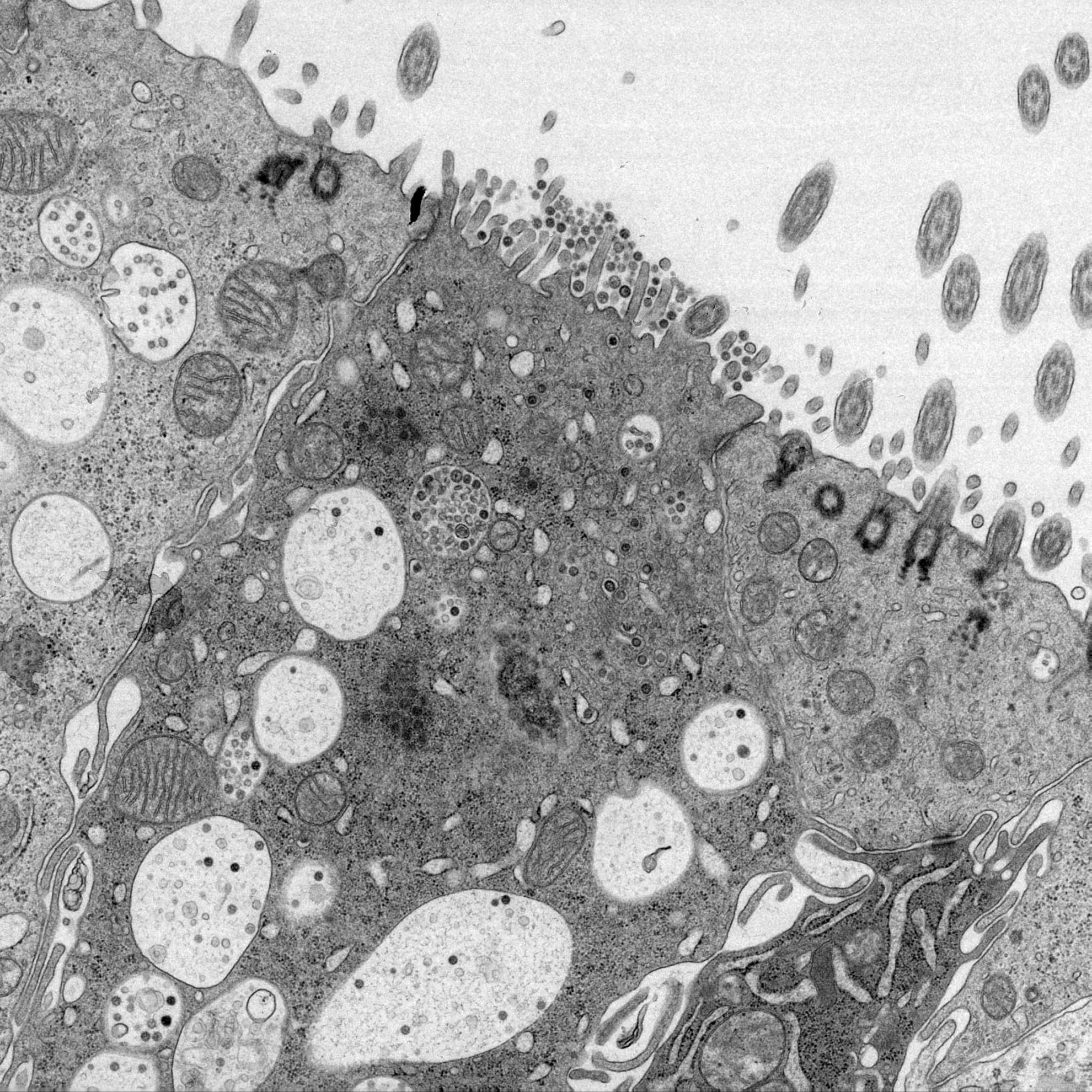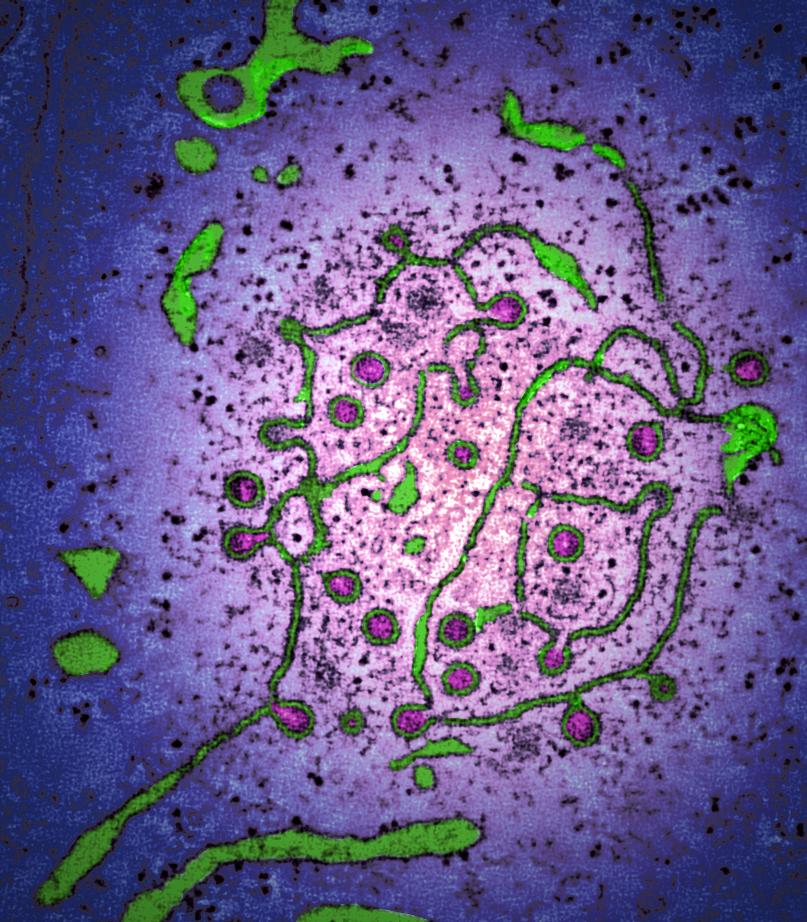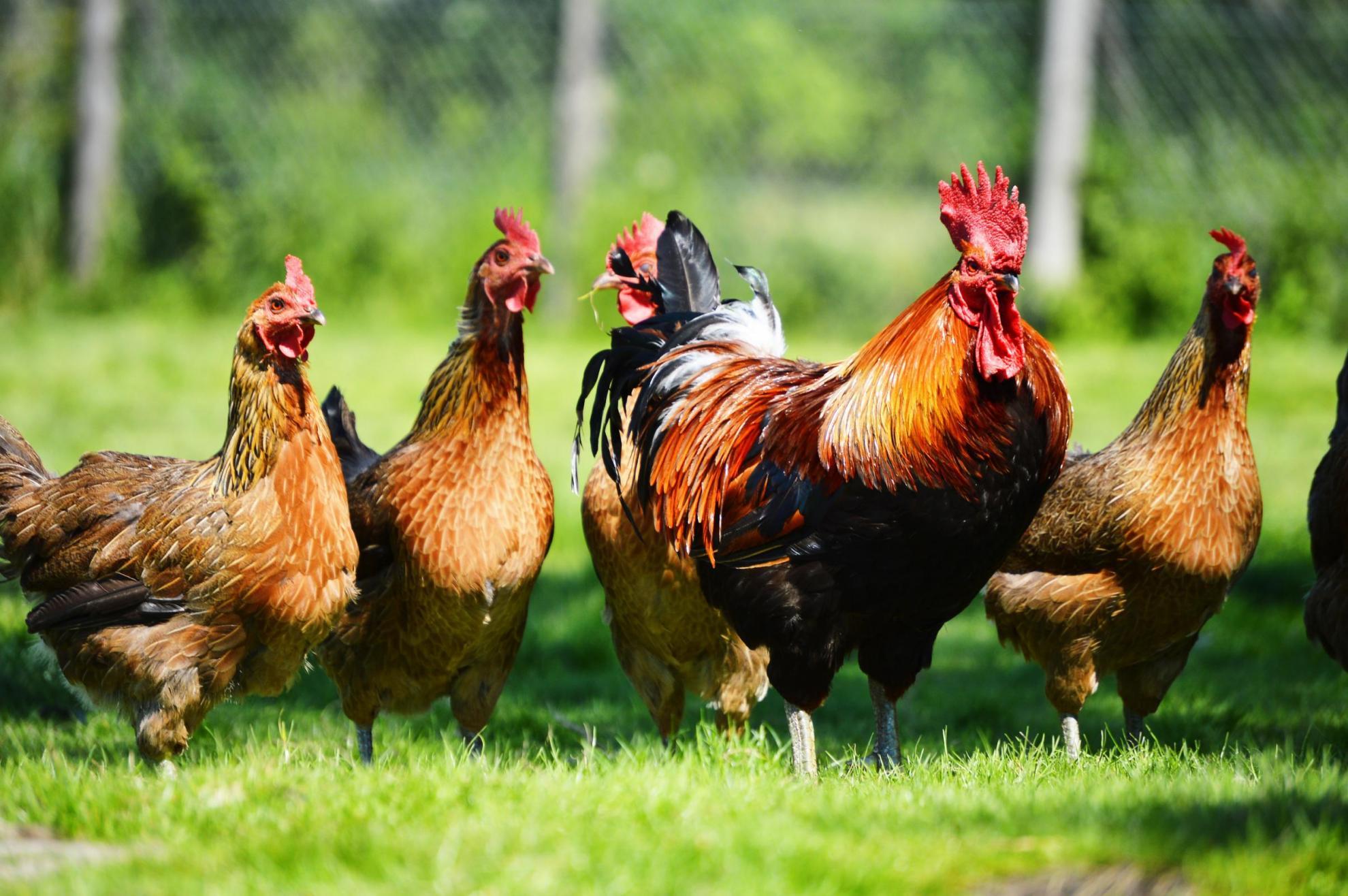Infectious bronchitis virus (IBV) is a highly infectious avian pathogen which affects the respiratory tract, gut, kidney and reproductive systems of chickens.
IBV primarily causes respiratory disease in infected birds but can also lower egg production, and cause kidney damage.
IBV is trasnmitted through aerosols or by ingestion of contaminated feed, water or faeces. Contaminated equipment and material are also a potential source for indirect transmission over large distances.
IBV is prevalent in all countries with an intensive poultry industry.
Clinical signs
- Young chickens are depressed and huddle under the heat source
- Gasping, coughing and nasal discharge
- Drop in egg production
- Poor quality eggs; misshapen or soft-shelled eggs with watery content
- When the kidneys are affected, increased water intake, depression, scouring and wet litter are commonly observed.
Virology
IBV belongs to the Coronaviridae family, genus Gammacoronavirus which has a single stranded RNA genome, surrounded by a nucleocapsid and envelope.
Pirbright's research on infectious bronchitis virus
In spite of available vaccines, IBV is a major problem for the global poultry industry. Work at the Institute is focused on studying the function of individual genes which give us a better understanding of the disease and how to design better vaccines.
Collaborations with pharmaceutical companies have been taking place to create novel designs for vaccines. The poultry industry and farmers have benefitted from improved understanding of the disease and the continued investment into new vaccines will reduce financial losses.


